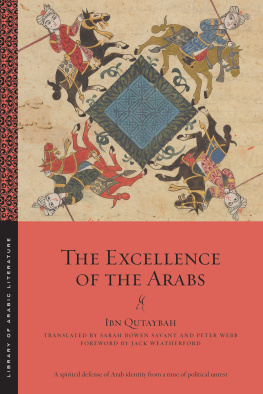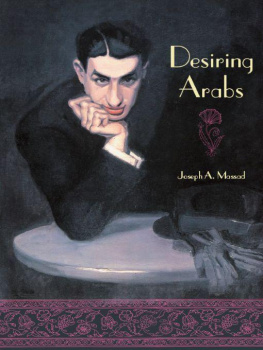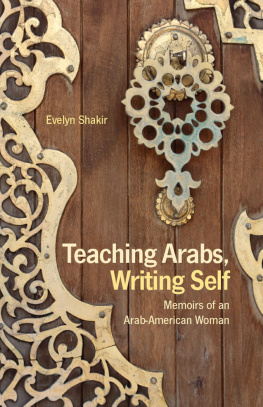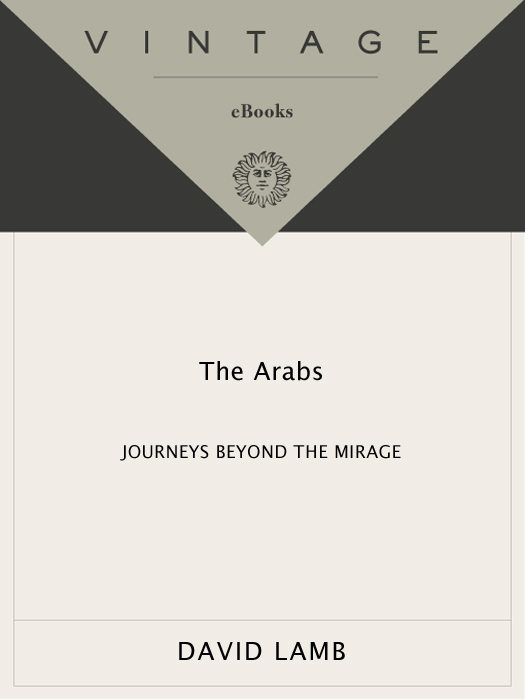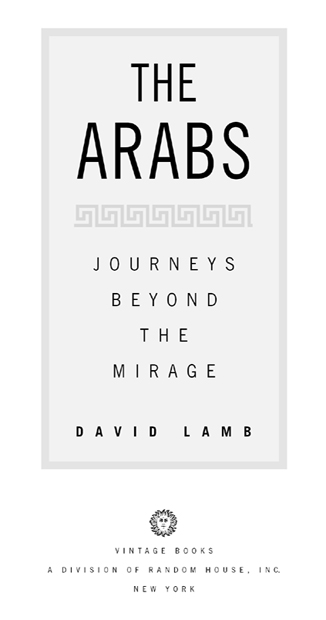
DAVID LAMB

THE ARABS
David Lamb has reported for the Los Angeles Times from more than a hundred countries on all seven continents. An eight-time Pulitzer Prize nominee, he is the author of six books and has been a Nieman Fellow at Harvard, an Alicia Patterson Fellow, a writer-in-residence at the University of Southern Californias school of journalism and a Pew Fellow. At present he works out of the Timess Washington, D.C., bureau.
ALSO BY DAVID LAMB
The Africans
(1983)
Stolen Season:
A Journey Through America
and Baseballs Minor Leagues
(1991)
A Sense of Place:
Listening to Americans
(1993)
Over the Hills:
A Midlife Escape
Across America by Bicycle
(1996)
Vietnam, Now:
A Reporters Return
(2002)
S ECOND V INTAGE B OOKS E DITION , M ARCH 2002
Copyright 1987, 2002 by David Lamb
Map copyright 1987 by Anita Karl and Jim Kemp
All rights reserved under International and Pan-American Copyright Conventions. Published in the United States by Random House, Inc., New York, and simultaneously in Canada by Random House of Canada Limited, Toronto. Originally published in hardcover by Random House, Inc., in 1987 and in paperback by Vintage Books, a division of Random House, Inc., in 1988, both in different form.
Grateful acknowledgment is made to Lowery Music Co., Inc. for permission to reprint excerpts from the lyrics to Ahab the Arab, written by Ray Stevens. Copyright 1962 by Lowery Music Co., Inc., Atlanta Ga. International Copyright secured.
All rights reserved. Used by permission.
Library of Congress Cataloging-in-Publication Data Lamb, David.
The Arabs: journeys beyond the mirage.
Bibliography:
1. Arab countries. I. Title.
DS 36.7. L 35 1987b 9092.0974927 87-45914
eISBN: 978-0-307-79793-3
Author photo Sandy Northrop
v3.1
For Sandy with loveagain
CONTENTS
INTRODUCTION
MY INTRODUCTION to the Arab world came in Washington, D.C. I had only recently returned to the United States after four years in sub-Sahara Africa and thought I was going to stay put for a while. Not having to catch midnight flights to cover coups dtat in sad little countries was a pleasant respite in a journalists life. Being an American among Americans offered a nice comfort level. My restless feet stopped itching. Briefly. Then, about the time I started planning imaginary itineraries and reminiscing a bit too often with friends about past travels to distant cubbyholes of the worlda sure sign the wanderlust was getting the best of me againthe Los Angeles Times needed a correspondent in Cairo and my editors asked if I wanted to pack up and cover the Middle East. I knew little about the Arab world, having been there only twice as a tourist, and even less about Islam. I accepted the offer on the spot.
There was a subculture of analysts in Washington who had built their careers around the Middle East, and I started making the rounds. My crash course took me to the shabby office the Palestinians had set up. I made an appointment to see the head of the delegation the next Tuesday. I showed up at the appointed hour but he did not, and his assistant dodged the one question I put to him: With so much money in the Arab world, why are so many Palestinians still living in refugee camps? He promised to reschedule the meeting with his boss, but my subsequent phone calls went unanswered. I drove across town to the new Israeli embassy, where the ambassador, military attach and political counselor spent three hours briefing me and only let me go when I ran out of questions. Public relations, I was to learn, was a concept the Israelis understood and the Arabs didnt, and during my tour in the Middle East I was constantly struck by the Arabs inability to present to the world a favorable or accurate image of either themselves or their causes. As the sultan of Oman would tell me, In many ways we are our own worst enemy.
At each luncheon and interview, talking to Arabs and Americans, I always asked, If I want to understand the Arabs, not just their politics, where do I gothe universities, the coffeehouses, the refugee camps, the government offices? The question seemed to take everyone by surprise, and I never did get a satisfactory answer. For them, as for most Americans, the Middle East is an area of high-stakes diplomacy, a breeding ground of terrorism, a place of conflict between Arab and Jew. Undeniably, it is all those things, but what of the people, the 243 million Arabs whose homeland stretches from the sands of Arabia on the east to the Atlantic shores of Morocco on the west? Who are they?
This is the question I set out to answer in this book. Although I deal in considerable detail with the history and issues of the Middle East, The Arabs is intended to be neither a concise history nor a political analysis. Rather it is a book of images, of sights and sounds and moods, of people both royal and commona montage that will, I hope, present a fair portrait of the Arab world and strip away some of the stereotypes that have led to so many misconceptions about its people, its religion, its great wealth.
It may be useful at the outset to say what I am not. I am not an Arabist, a political scientist or a religious scholar. I am a journalist. The grist of my craft is instant history, the medley of past and present that, at its best, brings insights into what was and what will be. The foreign correspondents whose work I have most admired over the years seem to share three qualities: an intellectual curiosity, a sense of humor and a concern for the people into whose lives they delve. I hope these attributes do not desert me as I sit here in Virginia, my computer filling the long moments of inaction with a demanding hum, and sift through the kernels of myth and fact from my encounters with the Arab world.
Those unfamiliar with the Middle East may be surprised to know that the majority of Arabs are poor, not rich; that Arabs as a group are capitalistic and politically moderate; that Islamwhen not perverted by misanthropes who carry out murder and mayhem in the name of Godis a tolerant, compassionate religion, not a radical one; that rather than being gunmen and refugees, most Palestinians are educated, middle-class, economically successful; that Israel, the only democracy in the Middle East and the fulcrum of Washingtons regional policies, shares with the Arabs the blame for creating turmoil and making peace impossible.
During my four years in Cairo, and in subsequent trips to the Middle East, my travels took me just about everywhere: from the Sinai peninsula, where I covered the Israeli withdrawal, to Lebanon for the Israeli invasion; from Beiruts Sabra and Chatilla refugee settlements, where I walked among the corpses of eight hundred Palestinian women and children, to Egypts Valley of the Kings, where one of the worlds first great civilizations was born five thousand years ago; from the space-age cities along the Persian Gulfwhere poverty is unknown and free land, education and medical care are the rights of every manto the slums of teeming Cairo, where peasants pay hundreds of dollars for the privilege of establishing residency in a tomb; from the start of a new day as the sun reached across the deserts of the Western Sahara to the long, dark nights of the Persian Gulf War.


